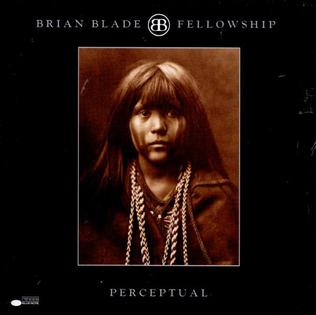David S. Ware Quartet, 'Surrendered' (2000)
At the end of Playing Changes is a list: The 129 Essential Albums of the Twenty-First Century (So Far). I organized these by year, and then alphabetically by artist name. I'll be running them down here, in that order. (No one appears more than once as a leader, though there’s ample overlap in personnel.)
The righteous, prayerful bluster of David S. Ware's tenor saxophone was an important force on the ground in New York at the turn of the century. And I do mean "force" — Ware could project with a physical intensity that rattled the ribcage, if you were sitting close enough in the room.
A veteran of the New York loft scene and a catalyst for the perpetual avant-garde, Ware led a phenomenal band in the early 2000s with Matthew Shipp on piano, William Parker on bass and Guillermo E. Brown on drums. (Previous iterations included several other fine drummers.) For a hot minute, this quartet recorded for Columbia Records, as a result of some inspired kamikaze calculation by Branford Marsalis, a label A&R exec at the time. Ware's first Columbia release was the excellent Go See the World, released in 1998 (with Susie Ibarra on drums). Surrendered was the second Columbia release. There never was a third.
The intensity of commitment in the DSWQ is apparent on every track of Surrendered. Gary Giddins may have been weighing in on a different record when he issued his famous pronouncement the following year — "Let's be bold: The David S. Ware Quartet is the best small band in jazz today" — but the praise fully applies here.
Ware went on to release a flood of music in the 2000s, mainly on the AUM Fidelity label. (The label has continued issuing material since his death in 2012; last year it released Live in New York, 2010, a document from a club engagement that I reviewed for the NY Times.)
What led me to select Surrendered for the 129 Essential Albums list is its generosity of scope and spirit; this is a DSWQ recording that almost any jazz listener could appreciate, if not for the stubborn preconceptions around "free jazz" or "the avant-garde." There's a version of Charles Lloyd's "Sweet Georgia Bright" on this album, and a calypso that points firmly in the direction of Sonny Rollins. But what drives the whole enterprise is a sense of quest — the same feeling, on some level, that many younger listeners now associate with Kamasi Washington.
Listen to "Theme of Ages," and the way that a compact, anthemic theme gradually assumes epic proportions. Just don't try to tell me that this music remains locked in its moment in time.
David S. Ware's Surrendered can be purchased on Amazon or streamed on Spotify.






